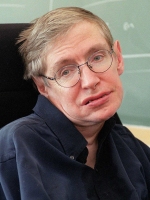This post was originally published on this site
By Witek D.
We agnostics and atheistic members of AA are sometimes criticized for changing the content of the 12 Steps. It’s partly true, but we MUST do it! We have to do this in order to stay in AA and to implement its program honestly.
We modify the content of only those Steps that are “impassable to us”. Let’s take, for example, Step 7: “Humbly asked Him to remove our shortcomings.” “Him,” written with a capital letter, means an extraterrestrial being, a God, who intervenes in people’s lives, removes defects, heals alcoholism and other diseases, according to his unfathomable will.
Well, agnostics, atheists, freethinkers, skeptics, liberal humanists, however we may call ourselves, do not believe in such a God.
This step, in its original form, is impossible for us to make. We can pretend that we practice it as written, cheat ourselves and others, or omit it. Both ways are incompatible with honesty, which we clearly should regard as an essential element of a sober life. What is wrong with the content of Step 7 in this secular version: “With humility and openness of mind we are looking for a way to eliminate our shortcomings”? Doesn’t it sound sensible? It contains the humanistic belief that we people are personally responsible for our lives, and we can and must face our flaws.
We take personal responsibility but that has nothing to do with isolation. We want to benefit from the help and support of other people, AA groups and the entire fellowship. We don’t believe that SOMEONE will do it for us, but someone, in the sense of other people, can help us. We avoid magical thinking that “God is doing for us what we could not do for ourselves” if only we pray long enough. We know that all AA is saturated with such theistic thinking, but we accept the right of all people to believe – or not believe – as they wish. At the same time, we are asking the traditional majority in AA to accept our disbelief in such solutions.
An acceptance that will allow us to feel fully like members of AA.
We want to be part of AA as its secular, liberal, minority stream. We think that together we could help more still suffering alcoholics. Acceptance, however, means more than just saying “you have the right to exist.” It is also an opportunity to organize secular AA meetings, to publish literature written by agnostics, and to make the necessary modifications to the 12 Steps enabling us to implement this program realistically.
So far, we agnostics in Poland have only one online meeting and no official literature, but we want to believe that alterations are possible. When? Time will show.
Recently I heard from one of the members: perhaps, instead of changing Steps, you could change your views? It would be safer. Really? This is my answer: It is probably easier to die when you believe that something will be there later, so that many of us, confronted with the end of our existence, would choose to convert to a religion. It’s very human and understandable.
On the other hand, it seems more honest and brave to be able to say: I am responsible for my life, for my good and bad deeds. I don’t blame anyone for anything. I don’t believe that “someone” will heal me from alcoholism, but also don’t accuse that “someone” of all the terrible evil that has happened in the world and still happens.
But what about life after death? I think that very few reasonable people believe in a heaven in which we will meet our loved ones and live forever. In happiness and joy, singing songs praising the Creator. Maybe I’m wrong? I don’t believe in it anyway.

Stephen Hawking
The two greatest scientists of the last 100 years, Albert Einstein and Steven Hawking, wrote that from the first nanosecond of the Big Bang almost all further history of the universe is known and follows precisely the rules of physics. There is no sign of any interference from God. The question is, who caused this first explosion and who planned it all? Here is a place for a higher power incomprehensible to our human mind which provided an impulse to start, but that’s it: no subsequent interference in the fate of the world and people’s lives. No particular intervention in our deeds and no requirement for prayers or specific behaviors. Agnostics, like Einstein, Hawking or me, can believe in such kind of power.
Summarizing, I consider myself an agnostic, and I think I would like to stay in this position. Another bonus of being an unbeliever is the real pleasure that comes from reading articles shared by other unbelievers and posted by AA Agnostica.
Witek D., 61 years old, has been sober since December 27, 1994. He has been living in a small town in the middle of Poland, where he attends his home group, “Compass”. For several months he also has had another home group: ”AA in AA”, “Agnostics and Atheists in AA” (an online meeting).
Active in AA service at all levels, in the years 2009-2013 he was a member of the Polish Board of Trustees. Witek openly talks about his agnostic views and just like Albert Einstein, he considers “The idea of a personal God is a childlike one… which I cannot take seriously”. He is concerned with the fate of agnostics and atheists in AA, tries to translate into Polish some articles from AA Agnostica and sends them to fellows potentially working on their recovery and includes them on the Polish website: AAwAA (In English: Agnostics and Atheists in AA). He attended the International Conference of Secular AA in Toronto in 2018.
The post Agnostics and the AA Program first appeared on AA Agnostica.
